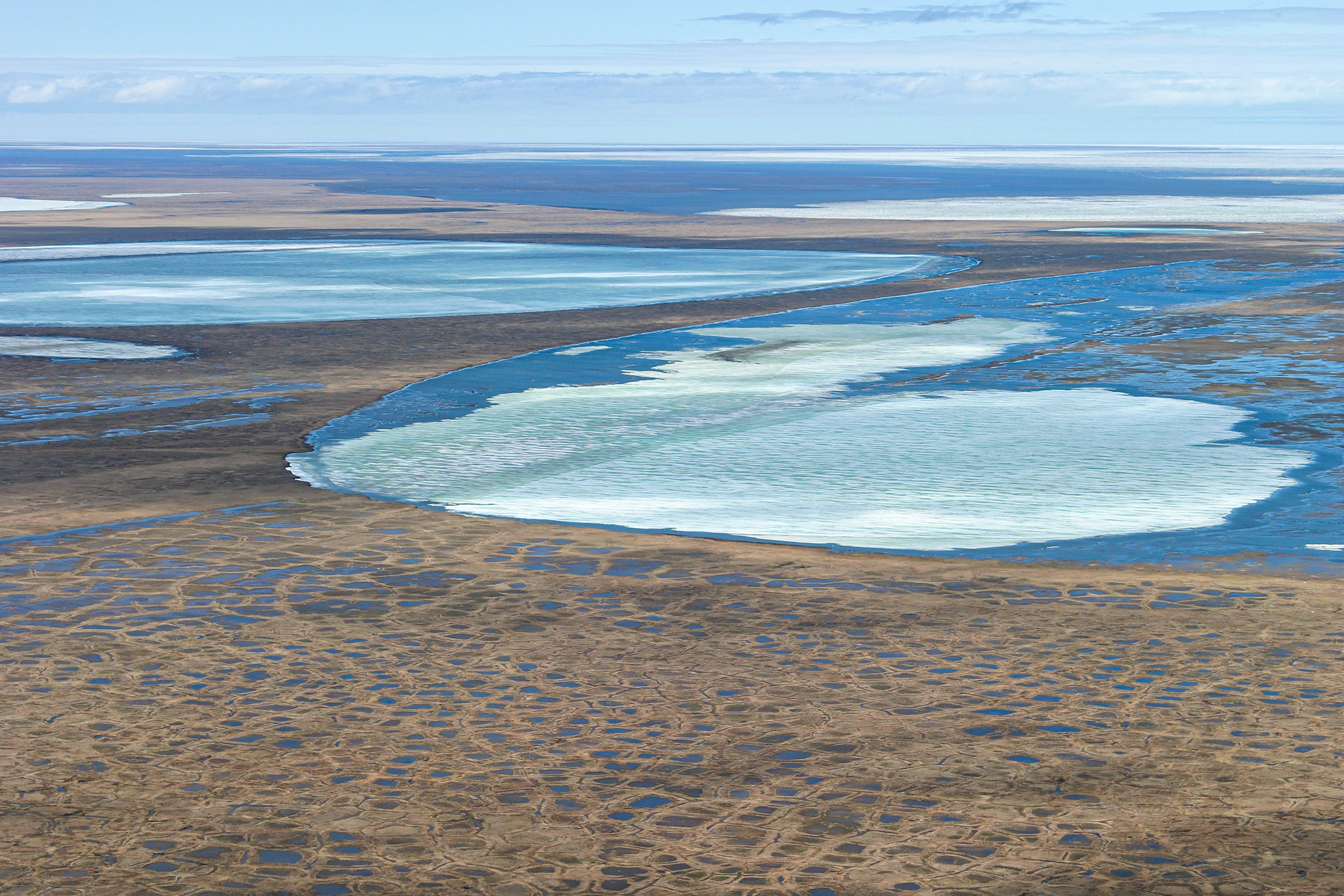Trump administration finalizes an expanded drilling plan for Alaska’s Arctic petroleum reserve
The plan opens millions of acres in the NPR-A, including sensitive areas such as Teshekpuk Lake, to oil and gas drilling.

With a little more than two weeks remaining in office, the Trump administration announced Monday that it has opened an additional 7 million acres of Arctic Alaska land to oil leasing.
A record of decision signed Dec. 31 by Interior Secretary David Bernhardt made final the new Integrated Activity Plan for the National Petroleum Reserve in Alaska on the western side of the North Slope.
The Trump administration plan, detailed in a final environmental impact statement issued in June, opens 82 percent of the Indiana-sized reserve to oil development. The record of decision makes good on one of the earliest promises by the Trump administration to strike down Obama-era protections that limited oil development in the Arctic. The Trump Integrated Activity Plan replaces an Obama administration plan that allowed about half of the reserve to be leases but established protections for the other half.
Interior officials lauded the new plan, intended to guide future oil lease sales in the petroleum reserve.
“This action is a significant achievement in delivering on our commitment to provide energy for America, from America,” Casey Hammond, principal deputy assistant Interior secretary, said in a statement. “With this decision, we are expanding access to our nation’s great energy potential and providing for economic opportunities and job creation for both Alaska Natives and our nation.”
“We developed a plan that is responsive to state and local government requests and needs,” Chad Padgett, the Bureau of Land Management’s Alaska state director, said in the statement. “Our team of subject matter experts worked diligently to provide a robust environmental review that achieves a balance between conservation stewardship, being a good neighbor, and responsibly developing our natural resources to boost local and national economies.”
A notable feature of the new Trump plan is the removal of protections for Teshekpuk Lake, the largest lake in Arctic Alaska. Teshekpuk and its wetlands are important to migratory birds that breed in the Arctic, the Teshekpuk Caribou Herd and other wildlife. The lake and its surroundings are also important sites for subsistence food-gathering.
The Trump plan includes some no-surface-occupancy rules for the Teshekpuk area but it opens the lake and its surroundings to leasing, a reversal of protections in place since the 1980s.
Environmentalists blasted the new NPR-A plan and singled out the Teshekpuk changes for particular criticism.
“Throwing out conservation protections for globally unique places such as the Teshekpuk Lake wetlands complex ignores the best available science for how these places should be stewarded in an increasingly warming Arctic,” David Krause, assistant Alaska director of The Wilderness Society, said in a statement.
“On its way out the door, this administration is sticking to its blunt and destructive approach to management solely for oil development. This flawed management plan will create more conflict and a less-stable business environment for companies operating in the region.”
“This plan opens up the vast majority of the land in the Reserve to drilling. It would auction off critical habitat that polar bears need to survive and vital habitat for caribou and migratory birds to oil companies. More drilling will just exacerbate the climate crisis in a region that is already experiencing warming twice as fast as anywhere on the planet. It is bad for the Western Arctic, bad for people and bad for wildlife,” Nicole Whittington-Evans, Alaska director of Defenders of Wildlife, said in a separate statement.
The NPR-A record of decision comes as the Trump administration is scheduled to open sealed bids in the first oil and gas lease sale in the Arctic National Wildlife Refuge.
Expansion of oil drilling in NPR-A and opening the refuge to oil development were both objectives of an order issued in 2017 by Ryan Zinke, Trump’s first Interior secretary.
Both Trump administration plans are being challenged in federal court by plaintiffs who claim the development programs are based on flawed and shoddy environmental reviews. Four pending federal lawsuits seek to overturn the ANWR leasing plan, and two lawsuits filed in August, within two months of the NPR-A final EIS, seek to overturn that plan.
The same day that the BLM announced the NPR-A record of decision, attorneys representing opposing sides in the ANWR debate argued in federal court over whether the Jan. 6 lease sale should be postponed.
Environmentalists and Native plaintiffs are seeking an injunction to delay the Jan. 6 lease sale, arguing that proceeding with it before the merits of the legal challenges can be determined creates immediate and irreparable harm. Those harms include post-leasing aircraft flights and vehicle traffic, seismic surveys and the bureaucratic momentum that would make it difficult for the BLM to change its leasing plan it the ultimate outcome of litigation results in an order to do that, the plaintiff attorneys said.
Attorneys for the Interior Department and some of the entities that intervened in support of the sale, including the Alaska Oil and Gas Association, the North Slope Borough and Kaktovik Inupiat Corp., argued that there is no compelling reason to delay the sale. Holding a lease sale will not create any on-the-ground impacts and thus no immediate harm to the plaintiffs, those attorneys argued.
U.S. District Court Judge Sharon Gleason said she plans to have a decision before bids are scheduled to be opened.
“I realize that it’s a rather short-term deadline in this particular case,” Gleason said at the Monday hearing, which was held by teleconference. “I will endeavor to enter a decision by the close of tomorrow.”
President-elect Biden and his nominee to head the Interior Department, U.S. Rep. Deb Haaland, oppose oil development in the Arctic refuge.